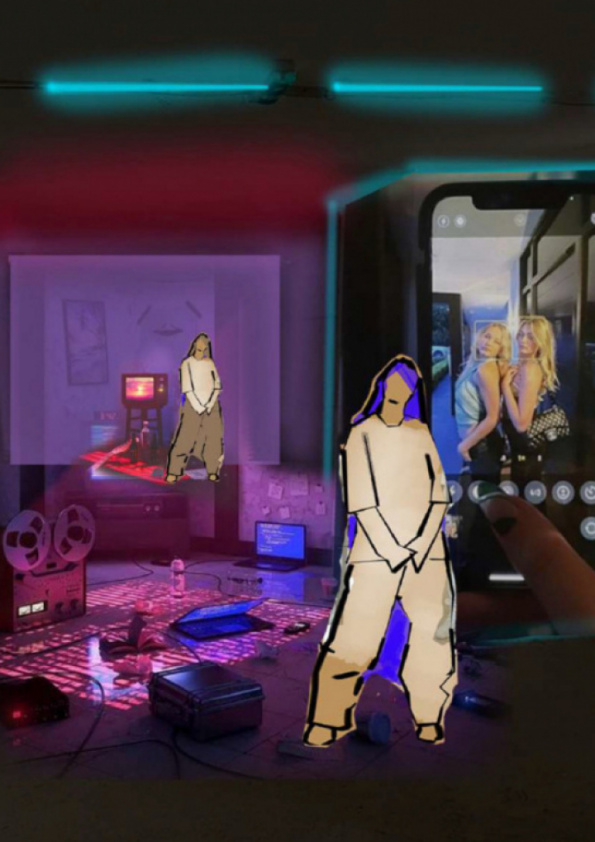More than a half wouldn´t want to share neighborhood with foreigners, migrants, refugees, Jews, and Muslims. Mentally or physically handicapped neighbor also presents a problem for the young people living in the city. Both groups tend to favour anti-democratic and populist parties.
The project was developed in cooperation with the Slovak Youth Council and Bratislava Conservatory.
Directed by: Juraj Hrčka, Erik Peťovský
Look into the minds of Zoomers, and if you belong to their generation, come, and find out how your peers are doing with otherness, their relationship to social networks, hoaxes, or themselves. If you're not a Zoomer, come see what we have in common and how we can live together. Are our generations as different as we think? And aren't we all in this together?
The productions The Unwanted Neighbor and Fantomas (on the stage in english: 12th June / 10am and 7pm) reflect the themes that young people of the Zoomer generation live with, but they may also touch other generations. The intolerance of otherness, fear of the unknown, the search for one's own identity, or the pitfalls of the world of misinformation resonate throughout our society. The Pavol Országh Hviezdoslav Theater stages these productions in English for the first time.
---
The staging of the productions in English was created in cooperation with the UNICEF organization. Young people of the generation Z, the so-called Zoomers are a fragile generation that lives in a digitized world with unlimited access to information, but at the same time, the world around them is changing irresistibly. Frustration and hatred are escalating in the online space, and they must navigate it and find their sense of belonging. The plays try to help them find answers to some of their questions and tell them that they are not alone. Presenting these productions in English is also a way to get closer to them.
---
The Unwanted Neighbor and Fantomas, together with the production The Nonpareil Beauty, are stable constituents of the DPOH repertoire, were created as part of the Tolerance Project, which is aimed at young viewers.
They try to name the problems of young people in their language and through their generation of actors (who also contributed to the plays with their own authorial texts) and try to find a solution together. This should be healthy self-confidence, tolerance, participation and an active approach to one's life and society. The young generation is just as divided as the adult generation.
They do not trust democracy, institutions, are prone to conspiracies, show signs of intolerance towards minorities and have no vital feeling that they have a chance to change things around them.
The fourth production of the Tolerance Project called Zombies, the theme of which is toxic masculinity, will be presented by DPOH in the new theater season.









